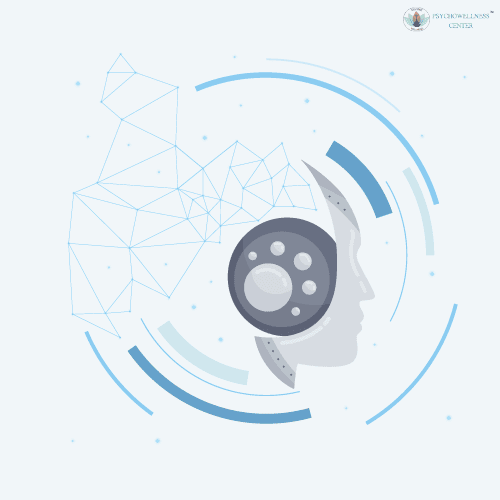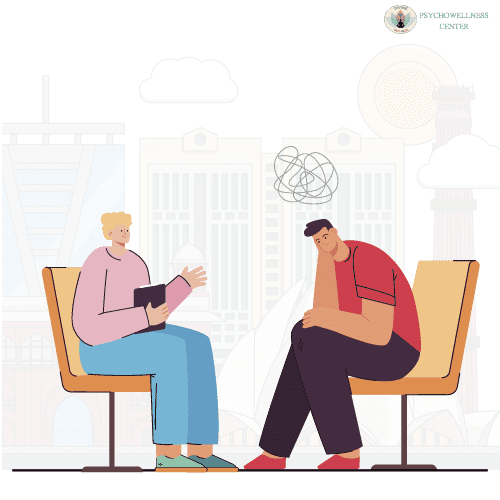The Power of Critical Thinking

Critical thinking is more important than ever in a society full of information and fast change. Critical thinking is the skill that enables us to connect disparate pieces of information and see the bigger picture. This blog will delve into the importance of critical thinking, explore methods to enhance it, and examine how connecting the dots can transform our personal and professional lives.
The Essence of Critical Thinking
Critical thinking is often described as the art of questioning. It’s about going beyond surface-level understanding and digging deeper into the “why” and “how” of a situation. This involves assessing evidence, considering alternative viewpoints, and making reasoned decisions.
Understanding Critical Thinking
At its core, critical thinking is about making connections. It involves:
- Questioning Assumptions: Rather than accepting information at face value, critical thinkers challenge existing assumptions and seek evidence.
- Analyzing Information: Evaluating the credibility and relevance of information, separating facts from opinions.
- Synthesizing Ideas: Combining various pieces of information to form a coherent understanding or generate new insights.
- Drawing Conclusions: Using evidence and logical reasoning to make informed decisions.
Critical Thinking in Daily Life
Critical thinking is not just an academic exercise; it’s a skill that permeates all areas of life like stress, anxiety, bullying. From personal decisions to professional challenges, the ability to connect the dots can lead to better outcomes.
Personal Decision-Making
In personal life, critical thinking helps us navigate complex decisions. Whether it’s choosing a career path, making financial investments, or understanding health advice, the ability to analyze information and consider various factors is invaluable.
- Career Choices: By critically evaluating our strengths, interests, and market trends, we can make informed career decisions that align with our goals and aspirations.
- Financial Planning: Assessing financial advice, understanding market trends, and making informed decisions can significantly impact our financial stability and growth.
Professional Success
This helps professionals make data-driven decisions, understand market dynamics, and address challenges effectively.
- Problem-Solving: Critical thinking allows professionals to identify the root causes of problems and devise effective solutions.
- Innovation: By connecting disparate ideas and concepts, critical thinkers can drive innovation and develop creative solutions to complex problems.
Methods to Enhance Critical Thinking
Enhancing critical thinking requires deliberate practice and a willingness to challenge our own thinking. Here are some strategies to improve this important skill:
1. Practice Active Reading
Active reading involves engaging with the text, questioning the author’s arguments, and evaluating the evidence presented. This approach helps deepen understanding and promotes critical analysis.
- Highlight Key Points: Identify main arguments and supporting evidence.
- Ask Questions: Consider the author’s motives, the reliability of sources, and any potential biases.
2. Engage in Reflective Thinking
Reflective thinking involves examining your own beliefs and reasoning processes. By understanding your thought patterns, you can identify biases and improve your decision-making.
- Self-Reflection: Regularly assess your decisions and thought processes to identify areas for improvement.
- Seek Feedback: Discuss your thoughts with others to gain different perspectives and challenge your assumptions.
3. Embrace Diverse Perspectives
Exposure to diverse viewpoints can broaden your understanding and enhance critical thinking. Engaging with people from different backgrounds and disciplines can provide new insights and challenge your own biases.
- Attend Workshops: Participate in discussions and workshops on critical thinking and related topics.
- Read Widely: Explore literature, articles, and research from various fields to gain a broader perspective.
Connecting the Dots: Practical Applications
Connecting the dots involves integrating information from various sources to form a comprehensive understanding. This skill is particularly useful in several areas:
Problem-Solving
In problem-solving, connecting the dots means identifying patterns, trends, and relationships between different variables. This approach helps in devising effective solutions and anticipating potential issues.
- Case Studies: Analyze real-world cases to understand how different factors interact and influence outcomes.
- Root Cause Analysis: Identify underlying causes of problems by examining connections between different variables.
Strategic Planning
In strategic planning, connecting the dots involves aligning different elements of a strategy with overall goals and objectives. This approach ensures that all aspects of the plan are cohesive and mutually reinforcing.
- SWOT Analysis: Assess strengths, weaknesses, opportunities, and threats to develop a comprehensive strategy.
- Goal Setting: Align individual and team goals with organizational objectives to ensure a unified approach.
Innovation
Innovation often involves connecting seemingly unrelated ideas to create new solutions. By synthesizing diverse concepts and approaches, critical thinkers can drive innovation and develop novel products and services.
- Idea Generation: Use brainstorming and mind-mapping techniques to explore connections between different ideas.
- Cross-Disciplinary Collaboration: Collaborate with experts from different fields to gain new perspectives and drive innovative solutions.
The Impact of Critical Thinking on Society
Promoting Informed Citizenship
Informed citizenship relies on the ability to critically evaluate information and make reasoned decisions. By fostering critical thinking, individuals can better understand societal issues, engage in meaningful debates, and participate in democratic processes.
- Media Literacy: Evaluate news sources and understand media biases to make informed opinions.
- Civic Engagement: Participate in community discussions and advocate for policies based on evidence and reasoning.
Enhancing Education
Education systems that emphasize critical thinking prepare students to navigate complex challenges and contribute meaningfully to society. By developing these skills, educators can help students become lifelong learners and problem-solvers.
- Curriculum Design: Integrate critical thinking exercises and problem-solving activities into the curriculum.
- Student Empowerment: Encourage students to question, analyze, and synthesize information rather than rote memorization.
The Role of Counseling in Enhancing Critical Thinking
Engaging with a top psychologist can further enhance your critical thinking skills. Professional counseling offers personalized support to help individuals develop self-awareness and refine their thinking processes. Skilled best psychologists at renowned institutions, such as the Psycho Wellness Center, provide tailored strategies to improve cognitive skills and decision-making abilities. Through individual counseling, clients can explore their thought patterns, receive feedback on their reasoning, and gain tools to enhance their critical thinking capabilities. This professional guidance can help individuals better analyze information, navigate complex situations, and apply critical thinking in both personal and professional contexts.
Conclusion
Connecting the dots through critical thinking is a powerful skill that enhances decision-making, problem-solving, and innovation. By practicing active reading, engaging in reflective thinking, and embracing diverse perspectives, individuals can develop their critical thinking abilities and make more informed choices. The impact of critical thinking extends beyond personal and professional realms, influencing societal progress and education. In an ever-evolving world, the ability to think critically and connect the dots is more essential than ever, paving the way for informed, innovative, and engaged individuals.
Psychowellness Centers in Delhi NCR, such as NOIDA, Faridabad, and Vasant Vihar, getting medical support has never been more accessible.
contribution:- Get professional mental health care at Psychowellness Center with Dr. R K Suri and Ms. Meghna Mohan Counselling psychologist via TalktoAngel.
Reference:
- Kalansooriya, J. (2023). Exploring innovation: Connecting the dots across creative thinking, lateral approaches, and conceptual synthesis. October 2023, 3(5), 274-280. University of Kelaniya.
- Cheng, C.-Y., Sanchez-Burks, J., & Lee, F. (2008). Connecting the dots within. Psychological Science, 19(11), 1178-1184. https://doi.org/10.1111/j.1467-9280.2008.02220.x
- Reimers, F., Bullrich, E., Cardozo, B., & Edwards, D. (2016, October). Connecting the dots to build the future teaching and learning. Teachers Alliance Varkey Education Foundation.
- Baker, M., & Rudd, R. D. (2001, January). Relationships between critical and creative thinking. 51(1). Texas A&M University and Virginia Tech.

.png)


SHARE